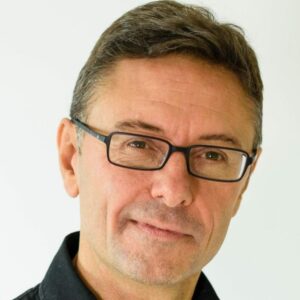Why white people should be more interested in equality, diversity and inclusion

I used to pride myself on how I felt I contributed to the world. In my mind, I was inclusive, genuinely concerned and interested in making sure everyone was treated as an equal. I used to say there is no race other than the ‘human race’ and I thought my belief was strong enough to mean that I was non-racist. I was wrong. In fact, I was living in a bubble of quiet optimism and delusion, essentially walking around with a bag on my head. So much so that my lack of activity in facing up to exclusion and racism meant I was in a way contributing to the status quo, which maintained racism and exclusion across our society and is endemic in every aspect of life. Please don’t get me wrong, I still believe things can change, but I realise I have to do more than just think I am being accepting and inclusive of diversity. I have to be anti-racist if change is going to happen.
The horrific death of George Floyd in 2020 and the heightened awareness of the Black Lives Matter movement (which was founded in 2013) put me in situations where I became increasingly aware of how other people felt unsafe in society and in the institutions in which I was working. I began to see the experiences of others more clearly and how my own unconscious biases may contribute to these negative experiences and the maintenance of a non-inclusive and unaccepting culture. Reading material like Robin DiAngelo’s paper on ‘White Fragility’ startled me. I have never thought of difference properly before. I never considered, for example, how it felt to want to buy a plaster in the chemist and for them not to be available in my skin colour. This may seem trite to some, but it is a simple indication of how society promotes a white, elitist culture.
I am glad to say that many things are changing, but this will only happen through acknowledging and addressing the imbalances facing the global majority that we currently support through inaction. It is no longer acceptable for me to just say I believe in equality, diversity and inclusion, I have to show and act on my beliefs. I have to challenge others when I think their biases may be active, and I have to be prepared to hear from others when I may have made mistakes. This means having difficult and uncomfortable conversations. Yes, we all get it wrong sometimes, and it is hard to hear the mistakes we have made, as I have found, but it is something we have to be prepared to go through rather than staying comfortable in a privileged existence.
Another key text for me was Layla F. Saad’s (2020) book ‘Me and White Supremacy’. The very title of this book made me feel uncomfortable, and the reading more so. This text certainly pulls no punches, and I struggled to read some of the content because I realised so many things about myself that I had previously buried. I thought about the ways I may have unintentionally dismissed the views of others simply due to inherited unconscious biases influencing my interactions with others and my own simplistic assumption that the world is OK. It definitely is not! But it can be.
I therefore encourage everyone to explore these three words more closely:

EQUALITY – DIVERSITY – INCLUSION
Give yourself permission to have conversations you have previously avoided about race, culture, gender or a protected characteristic. Consider, too, the added complications of the intersectionality of multiple characteristics (Crenshaw, 1989). Look beneath the surface of what you do and say, use research and publications to help you challenge yourself, be interested, be motivated and be part of change. This change applies to our work with clients and being with our colleagues, friends and family. It is only through this process of self-exploration and open, transparent dialogue that we will begin to shine the light on the hidden areas of society that have previously been ignored. If we can see these areas, we can work together to change them, and we can grow as individuals, as an Association and as a society. I truly believe that.
References
Crenshaw, K. (1989) Demarginalizing the intersection of race and sex: A Black feminist critique of antidiscrimination doctrine, feminist theory and antiracist politics. University of Chicago Legal Forum, 1989(1), Article 8. Available at: https://chicagounbound.uchicago.edu/uclf/vol1989/iss1/8
DiAngelo, R. (2011). White fragility. International Journal of Critical Pedagogy. Vol 3, No 3. pp 54-70.
Saad, L.F. (2020). Me and White Supremacy: How to Recognise Your Privilege, Combat Racism and Change the World. Quercus.




